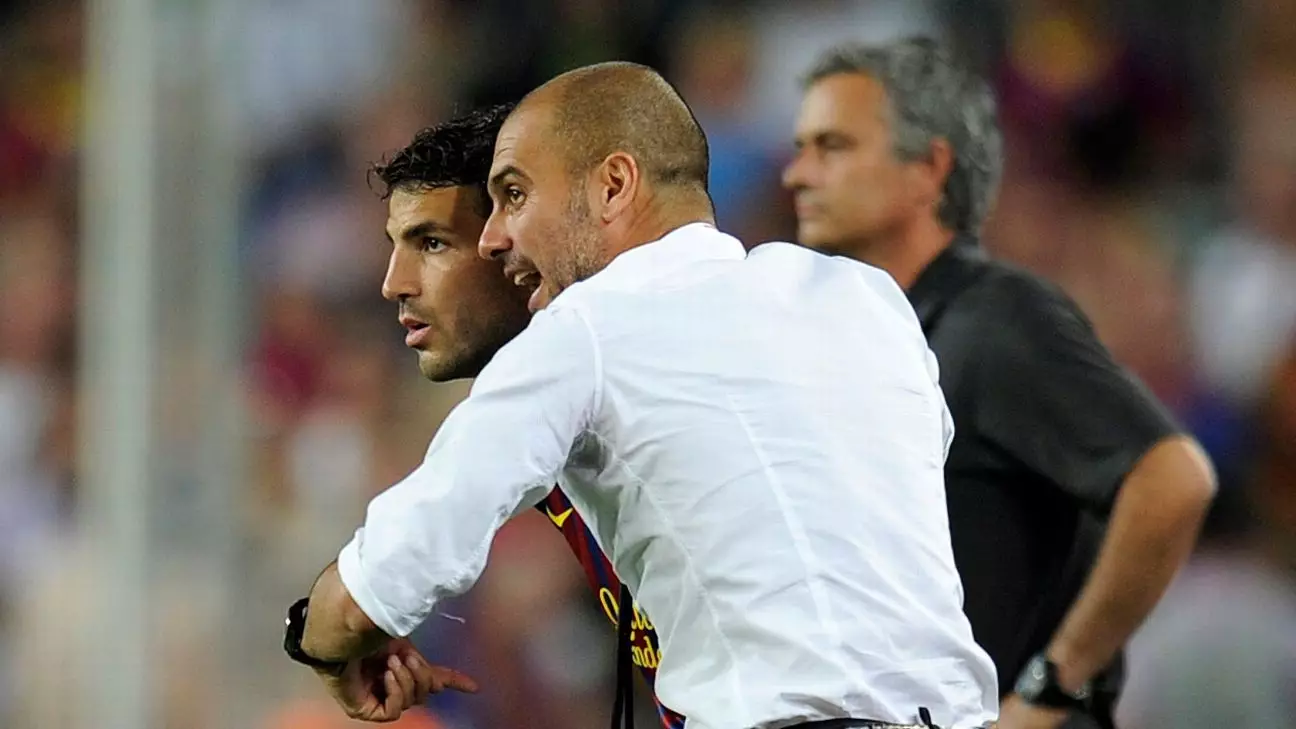Cesc Fàbregas, a luminary in the world of football, has transitioned from being a celebrated player to a coaching figure, bringing with him a wealth of knowledge gleaned from some of the sport’s most revered managers. Having graced teams like Arsenal, Barcelona, and Chelsea during his illustrious playing career, Fàbregas is now at the helm of Serie A club Como, guiding the team as they navigate the complexities of Italian football. His reflections on past coaches offer a deep insight into the attributes that shaped his philosophy, focusing specifically on the lessons learned from Arsène Wenger, José Mourinho, and Pep Guardiola.
The multicultural tapestry of his affiliations not only highlights the diversity of coaching styles but also emphasizes the essential qualities sought after in a modern-day manager. Fàbregas’s rich experiences reveal how each manager influenced him in distinct ways, contributing substantially to his evolution as a coach, now in his first full season with Como.
Arsène Wenger, who led Fàbregas during nearly a decade at Arsenal, represented a different breed of coaching. Fàbregas extols Wenger’s gentlemanly demeanor and the crucial aspect of patience, a virtue that seems increasingly rare in contemporary football management. In an era where performance metrics govern coaching tenure, the notion of nurturing young talent over immediate results speaks volumes about Wenger’s legacy. Fàbregas emphasizes the importance of understanding the ebbs and flows of a young player’s development, recognizing that personal growth takes time and sustained effort. His observations encourage modern coaches to reflect deeply on their approach towards youth mentorship—acknowledging that immediate satisfaction oftentimes sacrifices long-term potential.
“Patience is crucial,” he notes, suggesting that dedication towards developing younger players might require more intentional effort than simply fielding a seasoned squad. His echoed sentiment serves as a reminder that cultivating talent is inherently a process laden with challenges, yet it remains a vital component of any thriving football ecosystem.
Conversely, Fàbregas highlights José Mourinho’s audacity in making decisive choices as a hallmark of his coaching philosophy. His tenure at Chelsea saw Fàbregas won his first Premier League title under Mourinho’s guidance, but it is the manager’s mental acuity and willingness to act on gut instincts that left the most impacting impression. Mourning’s ability to assess players’ mindsets and recalibrate strategies in real-time signifies an advanced understanding of team dynamics.
“What I regard as bravery,” Fàbregas emphasizes, “is the capacity to execute swift changes in response to emerging scenarios during a match.” His admiration for Mourinho’s tactical acumen inspires Fàbregas’s own approach to coaching. The blend of intuition and readiness to adapt is something that many successful coaches must master.
While both Wenger and Mourinho contributed immensely to Fàbregas’s formative coaching values, he attributes his tactical education primarily to Pep Guardiola. Having played under Guardiola at Barcelona, Fàbregas recounts how the legendary manager’s capability to study opposing teams and devise strategic solutions greatly enhanced his understanding of the game. “Tactically, Pep is the one I learned the most from,” Fàbregas reveals, highlighting how Guardiola equipped him with the skills to analyze and respond to various in-game situations.
This emphasis on tactical awareness is crucial in today’s fast-paced football environment, where minute details can dictate the outcome of a match. Fàbregas’s endeavor to instill this methodology in his own players illustrates his commitment to fostering a new generation of tacticians who can think critically and act decisively on the pitch.
As he embarks on his coaching career, Fàbregas’s experiences reflect a rich tapestry of learning, growth, and adaptation. With the foundational principles instilled by Wenger, the brave decision-making of Mourinho, and the tactical nuances acquired from Guardiola, Fàbregas is poised to influence the next wave of talent at Como. This multifaceted perspective not only enriches his coaching philosophy but also serves as an inspiration within a sport that increasingly demands both technical skill and psychological insight from its players and coaches alike. As he embarks on this new chapter, one can only anticipate the strategic innovations he will bring to the beautiful game.

